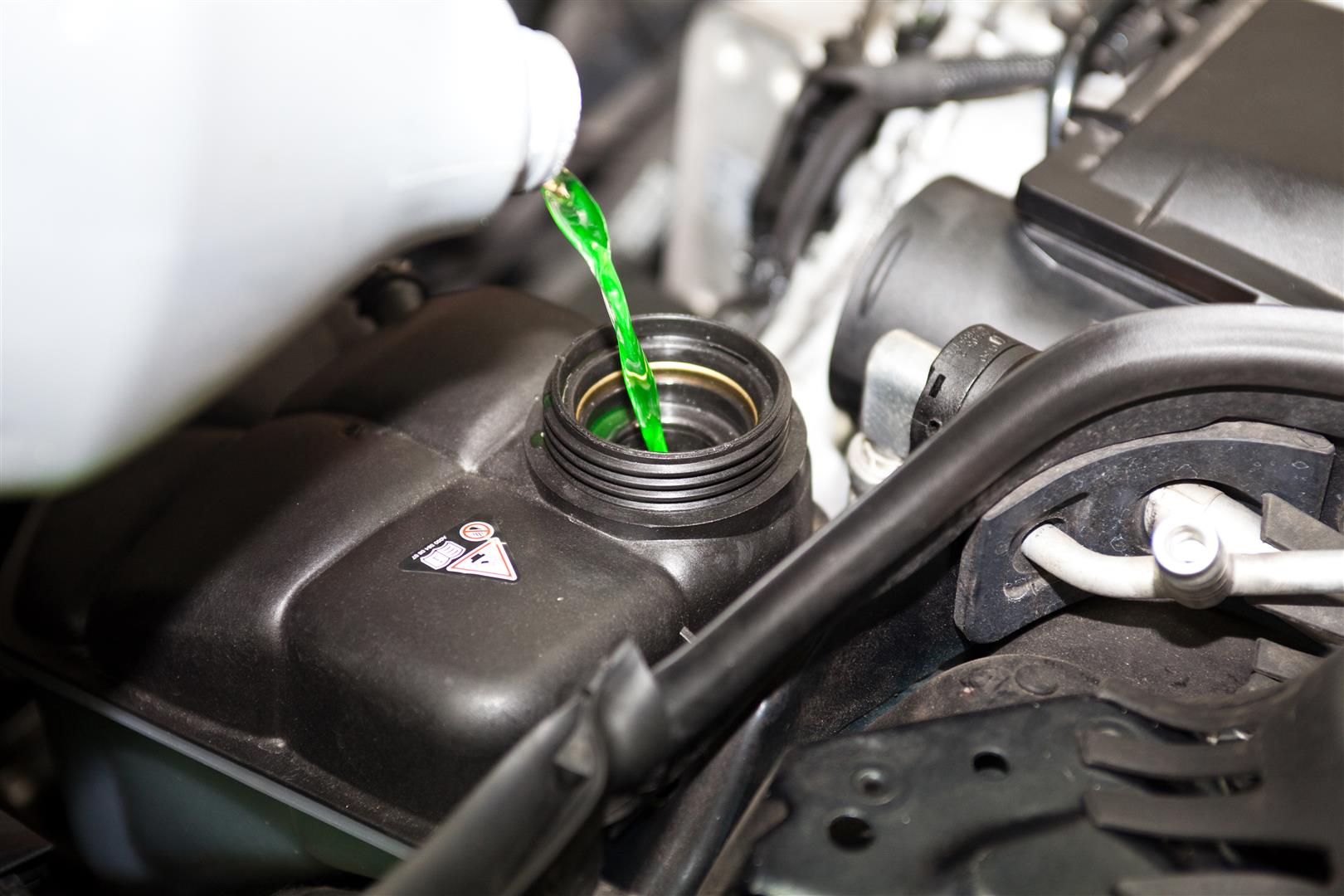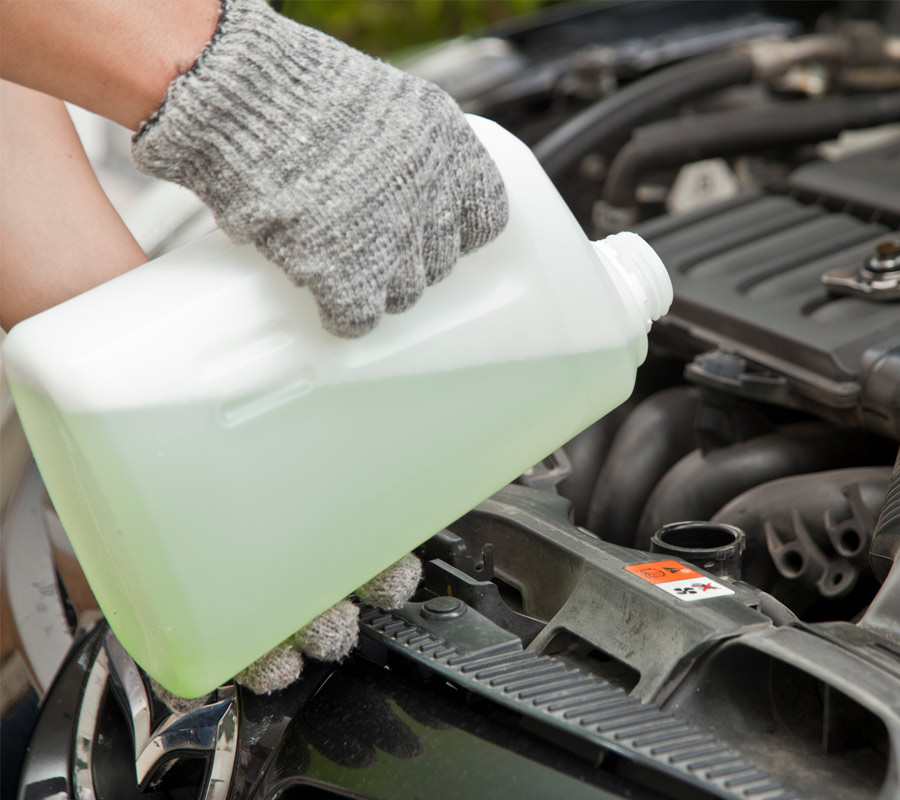Can you use water as coolant in your car? The short answer is yes, but it’s not ideal.
While water can help in emergencies, it’s not a permanent solution. Coolant does more than just cool your engine. It prevents rust, lubricates, and has a higher boiling point than water. Using only water can lead to overheating, corrosion, and other engine issues.
Understanding the role of coolant and the risks of using water alone is crucial. This post explores these aspects, helping you make an informed decision for your car’s health. Stay tuned to learn why sticking to proper coolant is often the best choice.

Credit: www.davesautomotivepa.com
Introduction To Using Water As Coolant
Car engines generate a lot of heat. To prevent overheating, a coolant circulates through the engine. But what if you don’t have coolant? Can you use water instead? This section explores the idea of using water as a coolant in your car.
Why Consider Water?
Water is everywhere. It’s easy to find and inexpensive. If you find yourself in a situation where you need a quick solution, water might seem like a good option.
Water is effective in absorbing heat. It can temporarily cool down your engine. This can be helpful in emergencies. But is it the best choice?
| Pros of Using Water | Cons of Using Water |
|---|---|
| Widely available | Can cause rust |
| Cost-effective | Freezes in cold weather |
| Quick fix | Boils at lower temperature |
Coolant Vs. Water
Coolant is specially formulated for car engines. It includes chemicals that prevent rust and corrosion. Coolant has a higher boiling point than water. It also has a lower freezing point.
Water, on the other hand, can cause damage over time. It can freeze in cold weather, leading to engine problems. Water also boils faster than coolant, which can lead to overheating.
While water can be a temporary solution, it’s not ideal for long-term use. For the best protection and performance, using a proper coolant is recommended.
- Coolant prevents rust.
- Coolant has a higher boiling point.
- Coolant has a lower freezing point.
- Water is a temporary fix.
- Water can cause engine damage.
- Check your coolant levels regularly.
- Use coolant designed for your car.
- In an emergency, water can help. But only temporarily.
Benefits Of Water As Coolant
Many car owners wonder if using water as a coolant is a good idea. Understanding its benefits can help you decide. Here, we will explore some key advantages of using water as coolant in your car.
Cost-effectiveness
Water is very affordable. Most people have access to tap water, which is free. This makes it a cost-effective option compared to commercial coolants. You save money by not buying expensive coolants.
Using water can reduce your car maintenance costs. It is a simple and budget-friendly solution for cooling your engine.
Availability
Water is available almost everywhere. If you are in a remote area and need coolant, water can be a lifesaver. You can easily find water at gas stations, convenience stores, or even in nature.
This widespread availability means you are never far from a coolant source. It provides peace of mind knowing you can refill your coolant system anytime.
Potential Drawbacks
Using water as a coolant in your car might seem cost-effective. Yet, it comes with several potential drawbacks. These drawbacks can severely affect your car’s performance and longevity. Let’s explore these issues in detail.
Risk Of Corrosion
Water lacks the anti-corrosive properties found in commercial coolants. This means metal parts in your engine can start to rust. Rust can lead to serious damage over time. Corroded parts might need expensive repairs or replacements. Also, rust can clog your radiator and other cooling system parts. This reduces their efficiency and causes overheating.
Freezing Issues
Water freezes at 32°F (0°C). In colder climates, this can be a big problem. Frozen water can expand and crack your engine block. This can lead to costly engine repairs. Commercial coolants contain antifreeze properties. These prevent the coolant from freezing in low temperatures. Using water alone lacks this important protection.

Credit: www.granvilleoil.com
Impact On Engine Performance
Using water as a coolant in your car can impact engine performance. Let’s explore how it affects heat dissipation and the potential for overheating. Understanding these effects is crucial for maintaining your car’s health.
Heat Dissipation
Water has good heat dissipation properties. It absorbs and releases heat quickly. This helps in preventing the engine from overheating. Water also flows easily through the cooling system. This ensures the engine stays at a safe temperature.
But, water lacks anti-corrosion properties. Over time, it can cause rust and damage the engine parts. This can lead to leaks and other issues. Using a coolant with anti-corrosion additives is better for long-term engine health.
Potential Overheating
Water can boil at 100°C (212°F). Car engines often operate at temperatures higher than this. If water boils, it can create steam and pressure in the cooling system. This can cause the engine to overheat.
Coolants have higher boiling points due to their additives. This makes them more effective in high-temperature situations. They also prevent the cooling system from freezing in cold weather. Using water alone increases the risk of engine damage.
Here is a table comparing water and coolant:
| Property | Water | Coolant |
|---|---|---|
| Boiling Point | 100°C (212°F) | Up to 135°C (275°F) |
| Anti-Corrosion | No | Yes |
| Anti-Freeze | No | Yes |
Choosing the right coolant ensures optimal engine performance. It protects against overheating, freezing, and corrosion. Water can be a temporary solution, but not a long-term one.
Comparing Water To Traditional Coolants
When deciding between water and traditional coolants, several factors come into play. Each option has its advantages and disadvantages. Understanding these can help you make an informed choice. We will compare water to traditional coolants under two main headings.
Chemical Properties
Traditional coolants contain chemicals like ethylene glycol or propylene glycol. These chemicals raise the boiling point of the liquid. They also lower the freezing point. This ensures your car performs well in extreme temperatures. Water, on the other hand, lacks these properties. It boils at 100°C and freezes at 0°C. This makes it less effective in very hot or cold conditions.
Longevity
Traditional coolants last longer than water. They often have additives that prevent rust and corrosion. These additives also protect the engine and radiator. Water does not have these additives. It can cause rust and corrosion over time. Using water may lead to more frequent maintenance and repairs.
Situations To Use Water
Water can be used as a coolant in certain situations. It is not ideal, but it can help in emergencies. Let’s explore these scenarios.
Emergency Scenarios
Imagine you are driving and the coolant runs out. You are far from a service station. Using water can prevent engine damage. It keeps the engine cool for a short time. This temporary fix can help you reach a safe place. Always check the coolant levels before long trips.
Temporary Solution
Sometimes, you might not have coolant on hand. Water can be a temporary solution. It helps in cooling the engine for a short duration. But, it is not a long-term fix. Water lacks the properties of proper coolant. It can lead to rust and corrosion. Refill with the right coolant as soon as possible. Your engine will thank you.
Precautions When Using Water
Using water as a coolant in your car can be a temporary fix. It is important to follow certain precautions. These precautions ensure the car runs smoothly and avoids damage.
Regular Checks
Check the water levels in your car regularly. Low levels can cause overheating. Overheating can damage your engine. Always keep an eye on the temperature gauge. If it rises too high, stop the car. Let it cool down before adding more water.
Mixing With Antifreeze
Water alone is not enough in most climates. Mix water with antifreeze. This mixture protects against rust and corrosion. It also prevents freezing in cold weather. Use a 50/50 mix of water and antifreeze. This ensures your car runs well in all conditions.
Final Thoughts
Using water as a coolant in your car can work in emergencies. It lacks the essential properties of antifreeze. Regular coolant is better for long-term engine health.
Using water as a coolant in your car can be a tempting solution. It’s readily available and inexpensive. But, it’s essential to understand its benefits and limitations. This way, you can make an informed decision.Summary Of Pros And Cons
Water can serve as a temporary coolant. It helps in emergencies. It cools the engine effectively. But, it’s not a perfect solution. Water lacks anti-freeze properties. It can freeze in cold weather. This can damage the engine. Water also lacks corrosion inhibitors. Over time, it can cause rust. It does not lubricate the water pump. This can lead to wear and tear. It’s not suitable for long-term use.Best Practices
If using water, follow these tips. First, use distilled water. Tap water can contain minerals. These can cause deposits in the engine. Second, mix water with antifreeze. A 50/50 mix is ideal. This offers better protection. Regularly check coolant levels. Top up if needed. Monitor engine temperature. If it rises, stop driving. Let the engine cool. Seek professional help if unsure. Always prioritize the health of your vehicle. “`
Credit: goodcar.com
Frequently Asked Questions
Is It Safe To Use Water As A Coolant In Cars?
Using water alone is not safe. Water can cause rust and overheating.
Can Water Replace Coolant In Emergencies?
Yes, in emergencies. But only temporarily. Replace with proper coolant soon.
What Happens If I Use Water Instead Of Coolant?
Your engine can overheat. Water can also cause rust and damage.
Why Is Coolant Better Than Water?
Coolant protects against rust and overheating. It has additives that water lacks.
Can Water Be Mixed With Coolant?
Yes, but follow the correct ratio. Too much water reduces protection.
Conclusion
Using water as a coolant is not ideal for your car. While it can work in a pinch, it lacks necessary additives. These additives prevent rust and overheating. Regular coolant is always the safer choice. It protects your engine better.
Always check your car’s manual for the best advice. Keep your car running smoothly with the right coolant. A little care now saves big repairs later. Stay informed and drive safely!

















